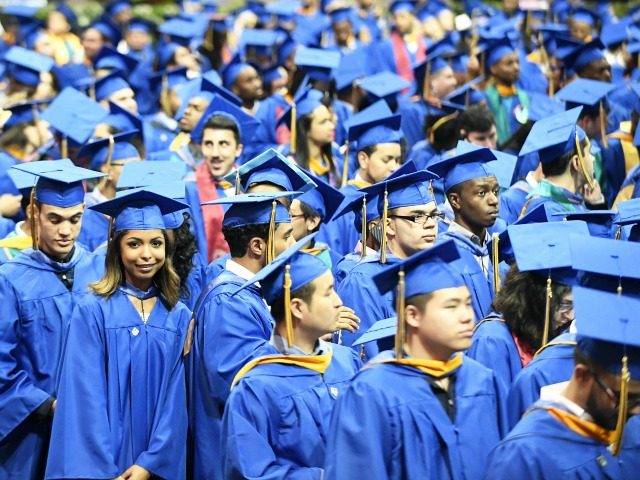The extreme liberal bias at America’s top-ranked colleges has received empirical confirmation with a study showing nearly 80 percent of liberal arts schools do not employ a single Republican on their faculties, a fact that undermines the credibility of the peer review process.
According to an article in the Federalist Wednesday, this utter absence of ideological diversity on college campuses is really bad news even for liberals. “The most valuable test of one’s worldview is to be confronted by an earnest exponent of a different or even contradictory one,” argues William A. Estes.
Or, put another way, “a mind untested is as useful as a pencil unsharpened,” he declares.
Last month’s study from Mitchell Langbert of the National Association of Scholars (NAS) revealed a startling homogeneity among tenure-track college professors at the nation’s top-ranked liberal arts schools, with registered Democrats outnumbering registered Republicans by more than 10 to 1.
At some of the more radically leftwing schools the proportions were more dramatic still, with Wellesley College, for instance, employing 136 Democrat professors for every 1 Republican. The faculties at more than a third of the colleges examined have ratios of at least 20-to-1.
The study failed to find a single Republican in faculties of interdisciplinary studies like gender studies, Africana studies, and peace studies, fields that “had their roots in ideologically motivated political movements that crystallized in the 1960s and 1970s.”
Moreover, the NAS study used a far more scientific method of ascertaining political affiliation than a simple survey, by cross-referencing publicly available voter registration data with faculty lists from 51 colleges.
This allowed researchers to uncover the declared political leanings of 8,688 academics from top-tier liberal arts schools. Among them, “78.2 percent of departments do not employ a single Republican,” the report stated.
Even at the most “conservative” schools such as the Naval Academy, the ratio of Democrats to Republicans is more than two to one.
Such skewed representation casts doubt on everything from academic inquiry to the process of peer review to so-called “scientific consensus,” Estes observes, since a monolithic body of reviewers with the same biases can hardly be expected to yield objective results.
“A variety of perspectives is a needed check on cognitive biases, to which even pedigreed scholars are susceptible,” he notes.
When “peers” are selected based on similar prejudices, good scholarship easily gets tossed for ideological reasons, while tendentious reports are more readily accepted as long as the underlying slant passes muster.
While U.S. colleges and universities ostensibly promote “diversity,” this is limited to questions of race, sex, and creed, with no effort to achieve or even accept diversity where it matters most: at the level of ideas.
Until this changes in any meaningful way, credible suspicions of bias will continue to plague studies emerging from American academia.
Follow Thomas D. Williams on Twitter Follow @tdwilliamsrome

COMMENTS
Please let us know if you're having issues with commenting.